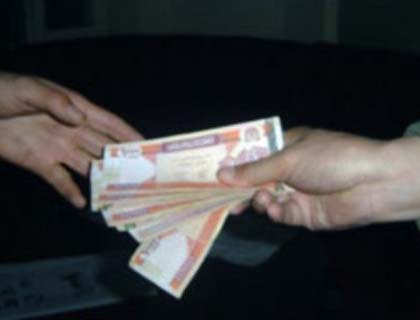KABUL - Following the release of a recent report from Transparency International that labeled Afghanistan as one of the three most countries in the world, falling just below North Korea and Somalia, European Union (EU) representatives this week demanded greater steps be taken by the Afghan government to curtail corruption and ensure aid money is being used properly.
Rampant, well-documented corruption in Afghanistan has caused quite a bit of hand-wringing in Europe and the U.S., where leaders find themselves compelled to support Afghanistan financially as part of their commitment to turning the country around after the fall of the Taliban while also being well aware that much of the donor aid over the years has simply lined the pockets of corrupt Afghan officials.
"We are very concerned because if donor countries realize that their aid is not spent appropriately, they will end their aid to Afghanistan," head of the EU's delegation to Afghanistan Franz-Michael Skjold Mellbin said.
The EU has asked the government of Afghanistan to adopt a zero-tolerance policy toward corruption and use all available measures to combat it.
"So, this change must come and we must be assured...the main problem is that people involved in corruption are not punished and government of Afghanistan must do that. The first step is to punish high ranking government officials who are involved in corruption."
Previously, Transparency International released a report that showed the Afghan judiciary was the most corrupt government body in the country, and the most corrupt judiciary in the world.
Meanwhile, the Afghan Independent Joint Anti-Corruption Monitoring and Evaluation Committee (MEC) has disputed the accuracy of Transparency International's most recent report, placing Afghanistan in the top three most corrupt countries worldwide.
The MEC said rates of corruption in Afghanistan have in fact decreased in recent years, and said the Transparency International report had political motives behind it.
"They haven't specified which side is more corrupt - private sector institutions or government institutions," MEC Director Muhammad Yasin Usmani said. "They don't have an office in Afghanistan and the people that they hire for collecting information are not reliable."
Usmani did not stop at questioning the integrity of the report's methodology and findings, however. He also took aim at foreign organizations in Afghanistan all together, saying they were more involved in corruption than Afghan ones.
"We don't trust this report, and must say that foreigners are more involved in corruption because a lot of money is spent by the foreign intuitions," he said. (Tolo News)

